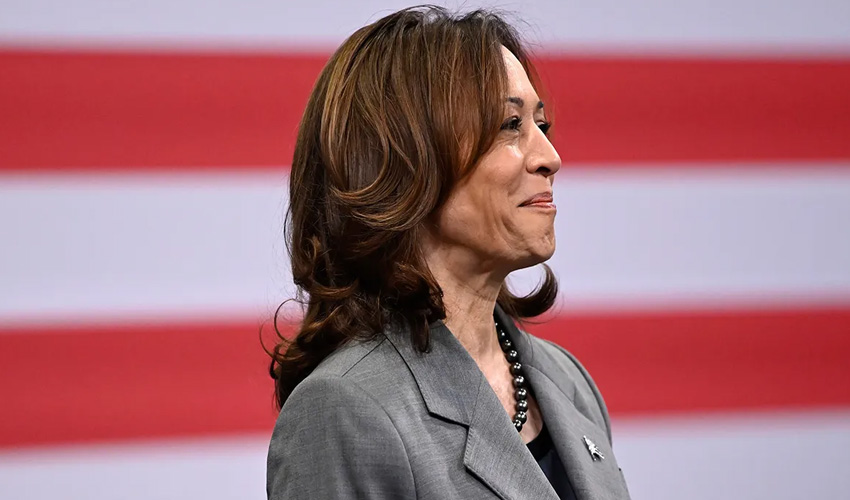Kamala Harris stands at a historic juncture in American politics, embodying a unique blend of firsts that highlight her potential and her formidable challenges. As the first woman to serve as Vice President of the United States and the first to be of both African and Indian descent, Harris has already made significant strides in breaking barriers.
As President Joe Biden has stepped down from his reelection bid, Harris finds herself as the leading contender for the Democratic nomination and potentially the first Black woman to occupy the highest office in the land.
Promising start
Harris’s campaign launch was met with considerable enthusiasm. Within a week of announcing her bid for the Democratic nomination, she managed to raise an impressive $200 million and enlist 170,000 volunteers. The early momentum was palpable, suggesting Harris might be on a smooth path to the nomination.
This initial surge in support was accompanied by a notable increase in voter engagement, with 38,500 new voters registering, predominantly younger Americans, indicating a revitalization of interest in the upcoming election.
Political analyst Cal Jillson from Southern Methodist University observed that Harris’s candidacy had indeed re-energized the Democratic base. This renewed vigor was reflected in the polls, with Harris’s support climbing to 43% as of late July, a notable increase from the 35% she had previously garnered. Further surveys conducted by Bloomberg and Morning Consult showed Harris leading Trump in key swing states, including Michigan, where she held an 11-point advantage.
The data also showed her in close contention in Arizona, Wisconsin, and Nevada, although she trailed slightly in North Carolina and Pennsylvania. Her competitive stance in these critical battlegrounds highlights her potential strength in a general election scenario.
You can also watch my podcast on the current changing political landscape during the US Election 2024.
Navigating obstacles
Despite the promising start, Harris’s path to the presidency is fraught with challenges. One significant obstacle is the persistent influence of gender and racial biases. Gerard Toal, a professor at Virginia Polytechnic Institute, pointed out that the office of the presidency is often associated with a patriarchal and masculine ideal, which could present a substantial hurdle for Harris. Historical data supports this concern; when Hillary Clinton ran for president in 2016, she struggled to win over male voters and faced significant resistance among white women, despite her overall higher approval among women.
The American electorate has long held certain biases, and Toal suggests that Harris, as a Black woman, might face even greater challenges. The lingering conservatism and traditional values held by some voters could make it difficult for her to overcome these entrenched prejudices.
Abortion rights
One area where Harris has made a significant impact is on the issue of reproductive rights. The Supreme Court’s decision to overturn Roe v. Wade in 2022 has galvanized many women and young voters who are outraged by the rollback of abortion rights. Harris has leveraged this discontent through her Fight for Reproductive Freedoms campaign, advocating for the reinstatement of protections for women’s rights to choose. Polls indicate that this issue could be a significant advantage for her, with a recent YouGov survey showing Harris leading Trump by 12 percentage points on the abortion rights issue.
Additionally, Harris’s strong appeal among Black voters—reflected in a CNN poll showing a 78% approval rate compared to Trump’s 15%—could be crucial in securing a robust base of support. Her campaign is also seen as potentially mobilizing younger voters and women who are particularly affected by recent changes in reproductive health laws.
Facing legacy of Clinton’s loss
Despite these strengths, Harris's candidacy may face a fate similar to that of Hillary Clinton, who won the popular vote in 2016 but lost in the Electoral College. Experts like Adam Garfinkle from the S. Rajaratnam School of International Studies caution that while Harris may perform well in urban areas, her challenge will be to secure enough electoral votes in swing states to win the presidency. This concern underscores the complexity of American electoral politics, where winning key states is more crucial than simply amassing a large popular vote.
Harris’s identity and background are both assets and potential liabilities. Born to an immigrant family in Oakland, California, with her mother being Indian and her father Jamaican, Harris has a diverse cultural heritage that could influence her approach to international relations and domestic policy. However, her foreign policy experience as Vice President has been limited and often criticized for lacking impact. Analysts like Dhruva Jaishankar have noted that while Harris has made several trips to Asia, her engagement with Asian issues has been relatively low-profile, focusing more on border security and migration from Latin America.
Despite this, Harris’s unique perspective as a person of color and daughter of immigrants may offer a nuanced approach to domestic and international issues. Virginia Polytechnic Institute’s Toal points out that her background could provide a broader understanding of global perspectives, which might influence her administration’s foreign policy approach.
Harris’s potential election would also be notable for another reason: she would be one of only a few vice presidents who have transitioned to the presidency. In American history, only four sitting vice presidents have won the presidency, including John Adams, Thomas Jefferson, Martin Van Buren, and more recently, George H.W. Bush. Harris’s position as vice president and president of the Senate adds a unique dimension to her candidacy, raising questions about her role in overseeing the election process if she does not win.
As the election campaign progresses, Harris will need to navigate these challenges with a clear and compelling vision for America’s future. Southern Methodist University’s Jillson emphasizes the importance of presenting an optimistic and inclusive vision that resonates with a diverse electorate. Harris’s ability to address critical issues such as immigration, crime, and economic concerns while differentiating herself from Trump’s more pessimistic outlook will be crucial.



























